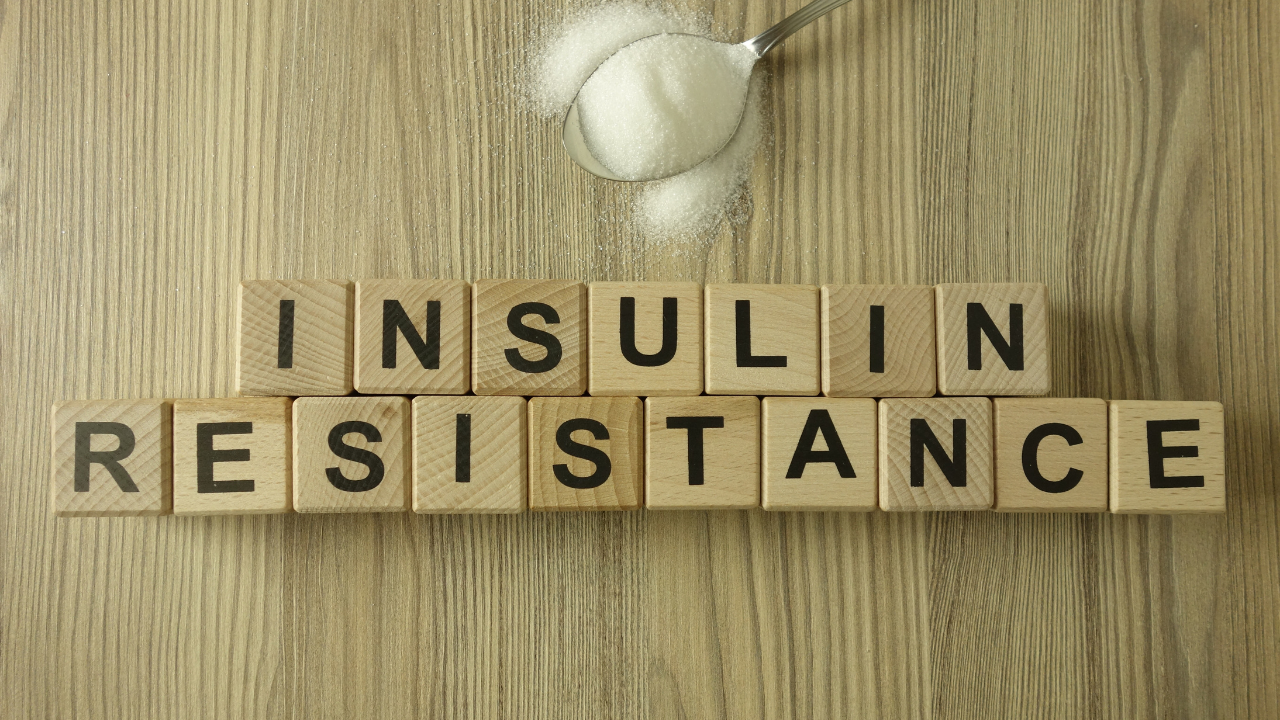Insulin Resistance!

Insulin Resistance, I'm sure you've heard this term before! It might have been on that commercial, blaming people's inability to lose weight on their insulin resistance. This is partly true! Losing weight when you're insulin resistant is very hard to do, but it's not as simple as that and cannot be fixed with a pill like the commercial makes it seem.
How We Use Insulin
Before we talk about insulin resistance, we need to talk about insulin sensitivity and how our body uses insulin.
1. Minimize insulin release. This occurs when your body is highly sensitive to insulin. Only a small amount of insulin is necessary to effectively and efficiently clear glucose from your blood to its storage sites. This is great news because your body has a tough time burning fat in the presence of insulin. The less insulin you have floating around, the better.
2. Quick and efficient blood sugar clearance. Again, this will occur when your body is highly sensitive to insulin.
3. Maximize glycogen uptake. Glycogen is used for stored carbohydrates in muscle tissue and the liver. When these tissues are highly sensitive to insulin, most blood glucose will be stored within them as an energy reserve instead of being converted to fat.
4. Minimize fat storage. When you increase insulin sensitivity, your body will choose to store your carbohydrate intake as energy, again in lean muscle tissue and the liver, instead of body fat. Excess carbs/glycogen will be stored as fat.
Simply put, your body's ability to process the carbohydrates you eat all comes down to your insulin sensitivity and your body's ability to quickly and efficiently clear sugar from your blood.
Insulin Resistance
Insulin resistance occurs when the body can no longer efficiently remove blood sugar from the bloodstream. Over time, the cells can't keep up. They stop responding to the insulin signal, and the body becomes "insulin resistant." The body is forced to release even more insulin because it cannot let blood sugar get too high. Excess insulin in the bloodstream, or hyperinsulinemia, is a serious problem because the body can't endure prolonged high insulin levels. Too much insulin disrupts cellular metabolism and spreads inflammation. Over time this will cause many issues within the body, including dramatically reduced fat-burning ability, increased blood sugar levels, and increased fat storage. It can lead to type II diabetes and an array of other health problems over time, including an increased risk for Alzheimer's and other cognitive disorders, premature aging, heart disease, and even stroke.
What Can We Do About It?
Well, much of our population has some form of insulin resistance or is at risk because of a diet high in process carbs and lack of exercise. Your diet precisely how to prevent or start to mend your body from insulin resistance. A diet full of whole foods is a great place to start. Avoid packaged foods and only shop the outside perimeter of the grocery store. Typically, this is where the produce, meat, and dairy are located. Bypass the isles with cookies, crackers, and processed frozen foods.

Here are more specific things to eat and when.
- Starchy Carbs (eat earlier in the day)
○ Baked potato, sweet potato, yams, rice (brown, wild, white), squash, pasta, oatmeal, barley, beans, peas, corn, bread (white, whole wheat, etc.) - Fibrous Carbs (eat later in the day)
○ Broccoli, lettuce, cauliflower, green beans, mushrooms, spinach, tomatoes, cabbage, celery, zucchini, cucumber, onion, peppers - Fruit: Choose berries & North American fruits over tropical fruits for lower sugar content and have one serving of fruit a day.
Don't Forget About Exercise!
Becoming more active is also great. Start on an exercise routine, and it doesn't have to be extreme; start moving your body a few days a week. When you get stronger and more confident, increase the number of days or the intensity. When you're ready, it's important to add resistance training to your workout schedule. The more muscle you have, the more areas on your body are available to store glycogen, and blood glucose will be less likely to be stored as fat. Also, lean muscle mass is the primary driver in our metabolism. Simply put, when you increase muscle, you boost your resting metabolism and burn more calories.
Learn more about our Metabolic Freedom Program and discover the power of glucose monitoring in managing hormonal weight change.




